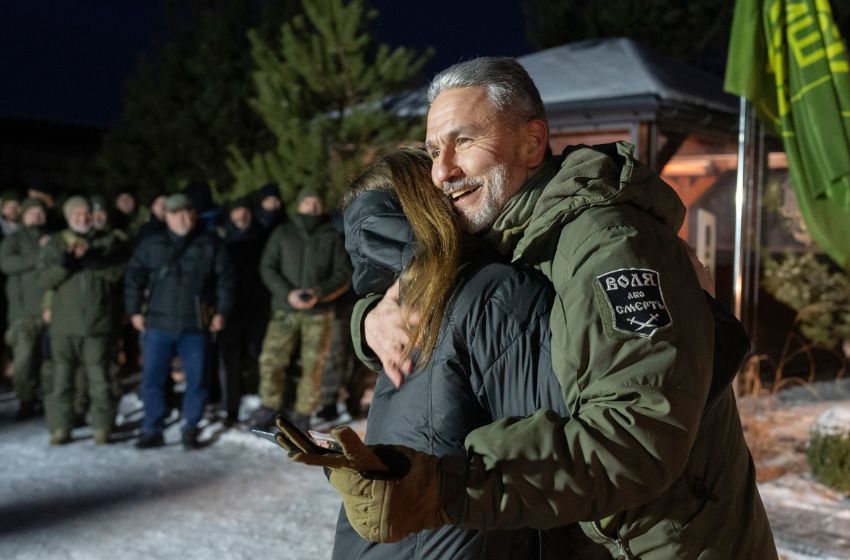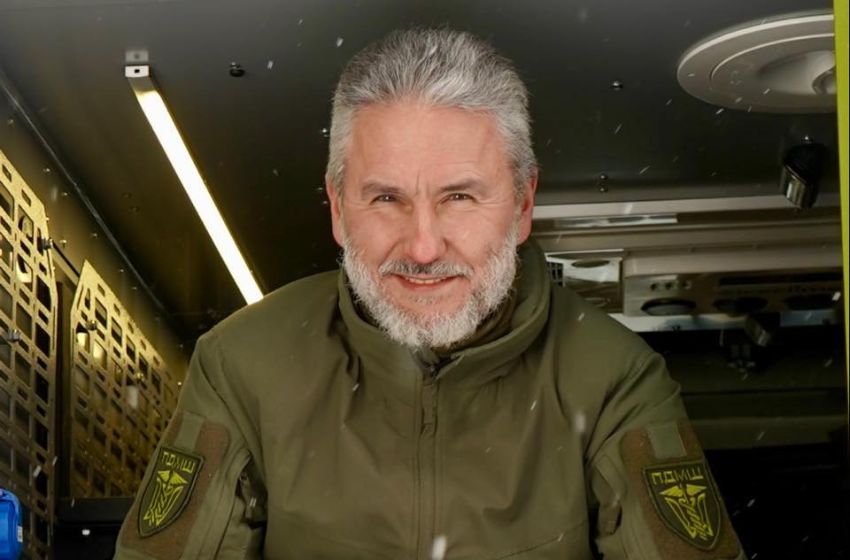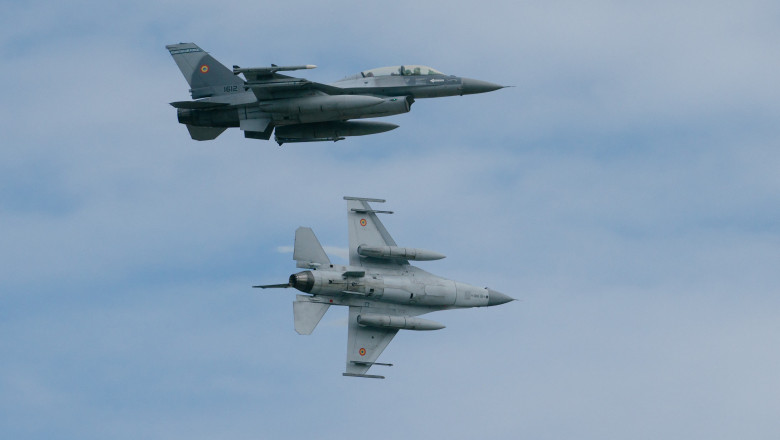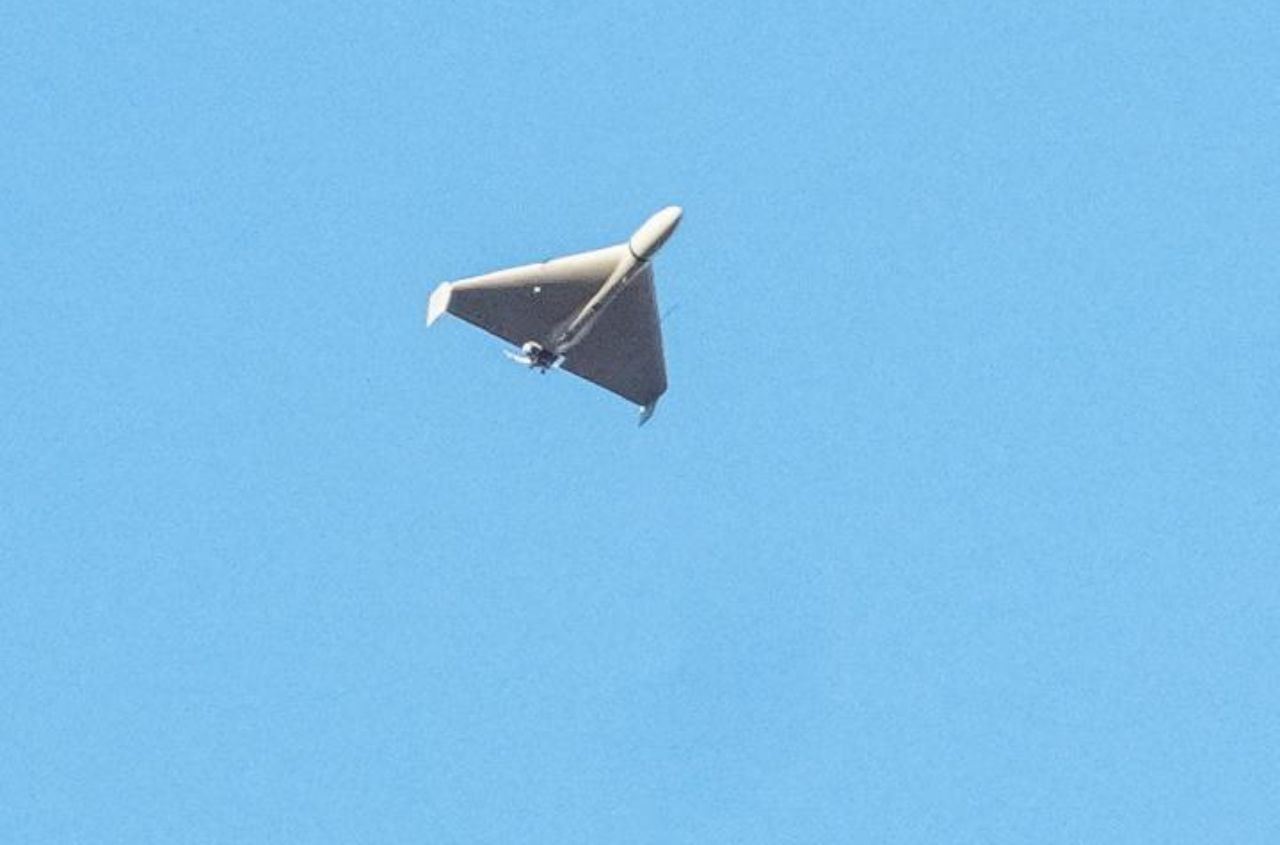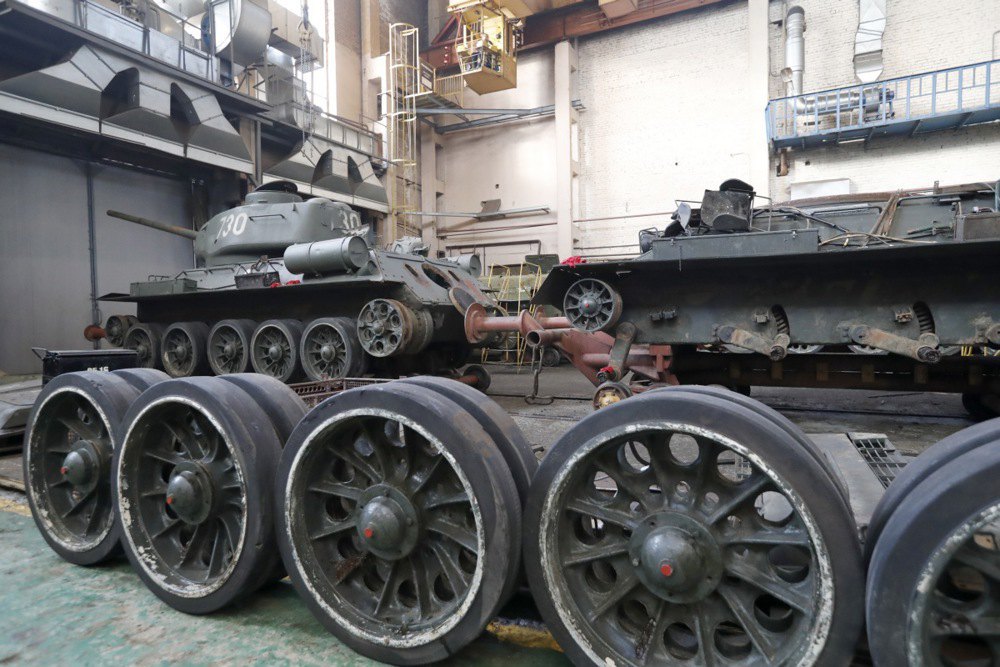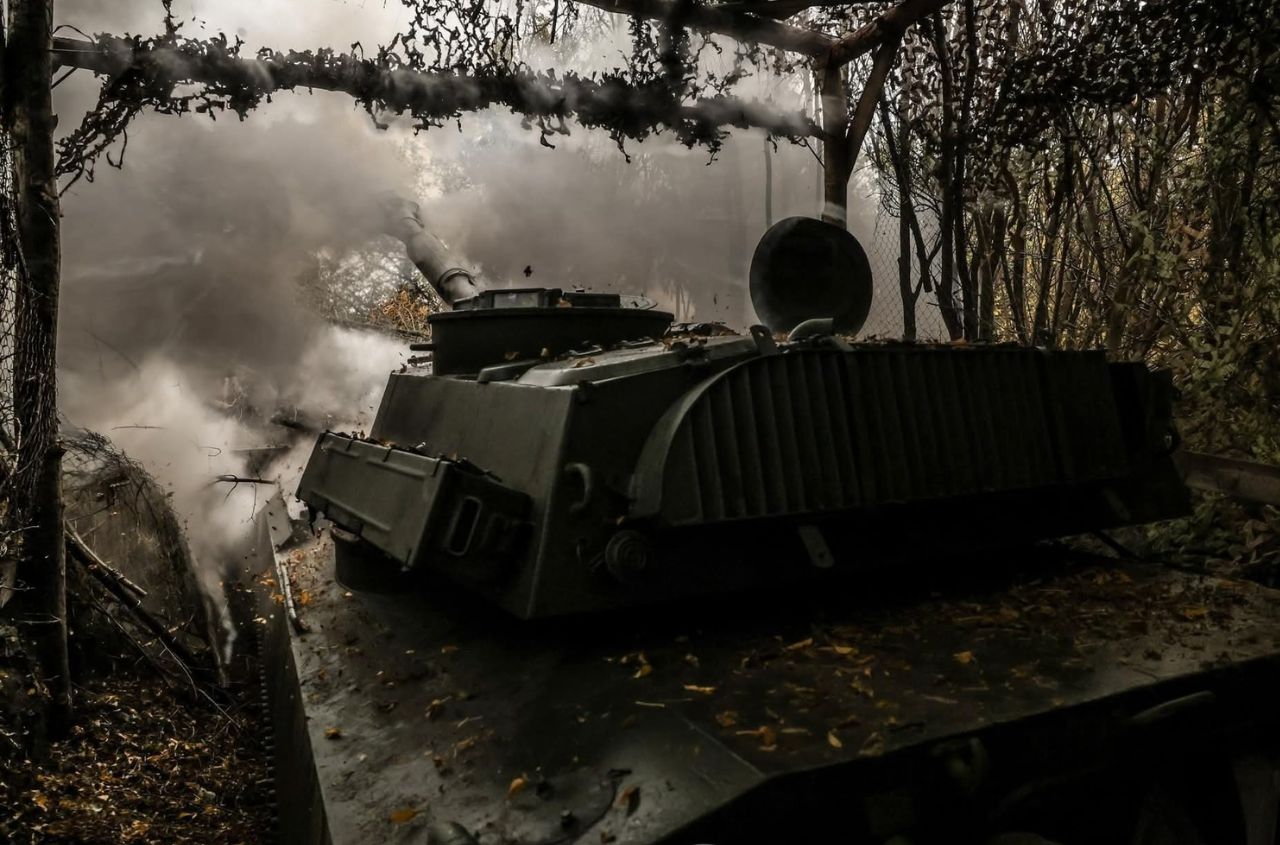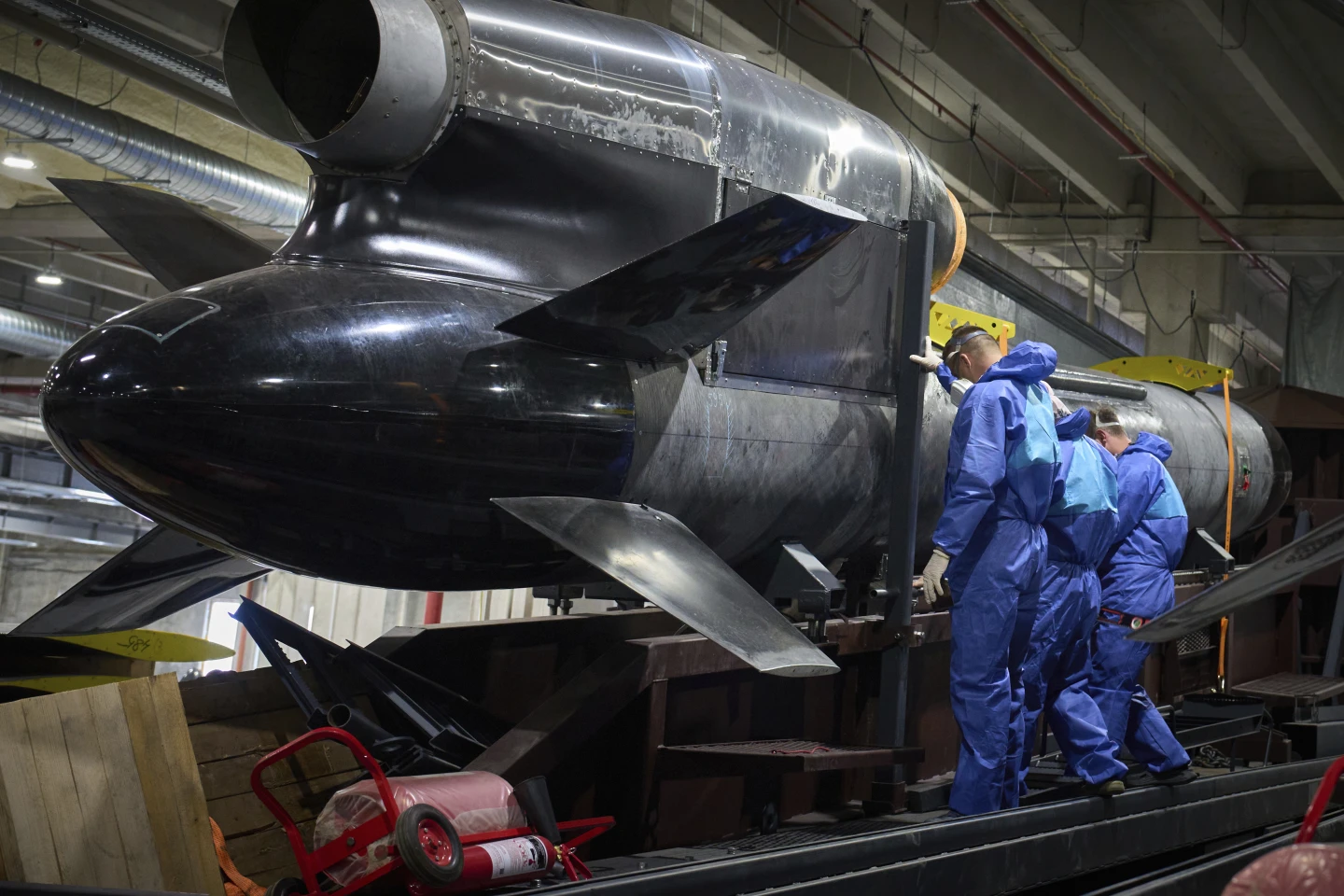Interview by Ugo Poletti
I met Gennadiy Druzhenko in a typical Kyiv cafe a stone’s throw from Mohyla University, a and the bank of Dnipro River. He was wearing the classic green military uniform without insignia, which in Ukraine is a distinctive feature of those engaged in a community service. In fact, Gennady is not a soldier, but a volunteer organising assistance to the wounded at the front. 10 years ago, he founded the Mykola Pirogov Military Medical Center (PDMS), the largest civilian project that provides medical care in combat zones in Ukraine.
How did your medical service started?
“It started during the Maidan protests in Kyiv. It was an improvised idea to organise small medical groups, because I remembered my turbulent youth when Ukrainian protesters were beaten by the riot police forces,. And it was a good idea. We intervened in the first day of the big clashes near the presidential administration. And at the second time we helped when the first people were killed on the Maidan. We organized an underground hospitals, even with surgery. And then the revolution of dignity won... That was for me like an experiment: how to make an effective organisation with very limited sources. I did my work, but I saw also the real medics, who were able to organise better this service.”
And what happened after this experience?
“I decided finally to go back to my law firm, where by the way the former Prime Minister of Ukraine, Oleksiy Honcharuk, the first chosen by President Zelensky, was a partner. But my life returned back to emergency medicine. We started again when the Russians occupied Crimea and the east of Ukraine. We began to train Ukrainian volunteers as a medical unit of frontline medicine. There it was a great tragedy with a lot of deaths and injured. Part of them was because of lack of any even basic medicine, basic equipment and medical training. At that time, a friend of mine, whom I met on the Maidan during our medical assistance, came to me and proposed to organize a field hospital. The idea was to collect vehicles, tents, like an American field hospital. And in a couple of months we prepared a very modest couple of cars, some mobile surgery room.”
From an emergency room in a city centre to a battlefield. Which were the most remarkable changes?
“At the end of 2014, we were driving to the east, first time as a mobile hospital, and I understood that American films about Vietnam or Korean War, like MASH, were rather very different from the Donbas. Because that is a very dense urban territory with a lot of stationary hospitals with walls, heating, water, oxygen supply. Therefore, we reconsidered to bring as much as possible civilian medics and put them in the most needed places, because especially in that time civilian medics was a much bigger community than military medics.”
Gennadiy’s organisation never stopped to work, even after the front stabilized for 8 years and the Ukrainian army was reorganised, until Russian large-scale invasion in 2022.
“In December we celebrated 10 years of our project. Now we are one of the long standing organisations. Many military units are younger than us. We are the best equipped, without any doubts, on the front line. And for me it's like an unexpected but very beloved child. My wife, who became a medic after the revolution of dignity, is our commander-in-chief on the front line. She supervised the medical team. Now we have three frontline bases, two rear stationary bases, and up to 50 vehicles with reanimation equipment.“
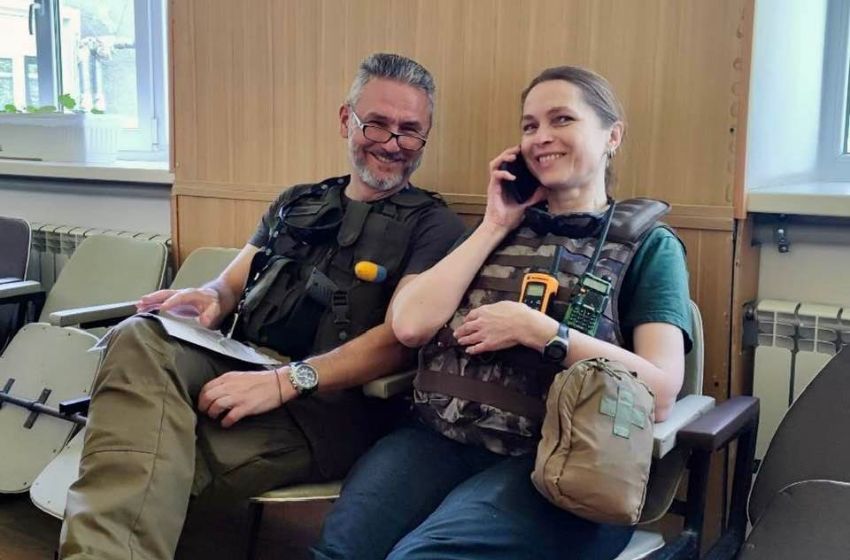
At the end of 2024, Druzenko’s medical centre celebrated the number of 100,000 patients assisted in 10 years. But approx. 45,000 of them were brought by the full-scale invasion. To a non-expert eye, it is difficult to understand how a military structure can cooperate with a civilian one in a combat zone.
“We are partner. Of course, we couldn't just take the wounded soldiers and run somewhere. We have a resolution of the commander-in-chief of Ukrainian armed forces, which integrated us in the defended force of Ukraine. We operate on the three stages of the pre-hospital medical treatment. First, the special passing point, two to five km from the front line, when the combat medics take off the wounded soldiers and pass to us, who are the first professional medics who receive them. Second, we deliver the wounded soldiers to the stabilization point, which is in the middle between the hospital and frontline. In the stabilization points, you stabilize the patient before the final transport to the local hospital, which is the third stage. We work shoulder to shoulder with military. We live together.”
We know from war reports that ambulances are a target by Russian drones and small arms fire.
“For sure. Medics are a special target for Russians, because when you kill medics, they cannot help anymore. Fortunately, we haven't lost any guy on the field. But it's anytime riskier. That is, we try to minimize it as much as possible.” But how can you minimize this risk if your red cross emergency vehicles are a target for the enemy? “There is a complete camouflage of vehicles, because a red cross is a clear target for them. And that was since the start of the Kyiv campaign. I know at least a couple of stories when the people on the ambulance were intentionally killed by snipers or automatic guns. There is a logic behind this, but it's barbaric.”
Gennadiy’s academic education is law and he specialised in UK and US universities in constitutional design, which means how to organise big political societies, to create the right government architecture. Ukraine is a country which is suffering a total war and this puts the state under a big stress. In such a situation state rules of government often reveal some defaults. Was Ukraine prepared to face this crisis in terms of national Constitution?
“The Ukrainian Constitution just doesn't work. There are two problem. First, foremost, there are a lot of controversies because it was a compromise between the left, which was represented by the heirs of communist system, let’s call it the Soviet tradition, and the new national democrats. So, they chose the Ukrainian as the official language in change of some public rights, which actually are undermining our economy. For example, a free health service is very good, but somebody should pay for it. It is not for free. The right question is: “who is paying for it?” Our constitution reminds me a car driving with the manual brake on. “
Putin declared that Zelensky is not a legitimate president because his mandate has expired. And he is using this excuse to justify his refusal to negotiate directly with him.
“This is an example of a very urgent question about the real term of the presidential credential. After five years, the president's election should be taken at the end of his term, which is clearly over. Unlike the parliament, where there is a clear exception in case of emergency or war crime. But Zelensky just ignored it and nothing happened. Now, we have two problems: a lack of formal legitimacy and a lot of internal controversy. But there is another more painful problem. The Constitution has never been formally legitimated by the population, because it never passed through a referendum. It was approved by a parliament, which wasn't trusted by the people. So, we decided to take these rules, but, in fact, we try to avoid them.“
How is it possible to solve this problem? A young democracy with unclear rules of government is exposed to political instability.
“We should make the same things which Americans did together in Philadelphia, after they won the war for independence. We have to meet and talk about a real social compromise with a public open debate. Now we have a lot of this tools which allow digital debate like in Israel. But we need something which would be not a decision of an untrusted elite in the parliament. We, the people of Ukraine should take this Constitution. That was never been discussed. And that is our problem.”
Are you saying that Ukraine is a divided country? Apparently, there was a great unity in the defence against the Russian invaders.
“Now. we are very divided country. We know that Russians are our enemy and they want to destroy us. But there are no other things which unite all Ukrainians. Just imagine that Putin tomorrow dies and Russia stops any aggression. We will start to fight each other. So, better to speak to each other, than fighting. We should decide why we have to live together. And what is our aim as a nation. That is a real, genuine constitutional process. I dream about it and I worked for it. Before the war, we even organised a Centre for Constitutional Design and started to translate some academic articles, some new approaches to Ukraine, to make real, effective, sober constitution for Ukraine. Because without that, we just will be at best a poor country with great feeling of resentment, looking for the internal enemy and thinking that who is a true Ukrainian, is right, and who is not, is wrong.”
We saw that sort of internal fight between Ukrainians in Odessa, in the harsh debate on the “law of Decolonization” and the regional administration’s decision to remove historical monuments and exchange old street names, with heroes of Ukrainian nationalism.
“The Odessa case was extremely revealing. Why to glorify whom, who is a clear hero for western Ukraine but not for southern one? And this created a level of intellectual fight, with people saying: look, we are Ukrainians as well, but with different traditions. Why, if you express a different opinion, they say that you are a Russian propagandist? When I saw love for Ukraine, this was very inclusive. If you go to Lviv, you see one face of Ukraine, if you go to Odessa, there is very different one. The Jewish tradition in Dnipro is another story. And this is our history.“
In Odessa the supporters of the enforcement of the law of Decolonization blamed the dissidents for lack of patriotism, notwithstanding that even the Ukrainian Institute of National Memory admitted some mistakes in the cancellation of famous writers’ names. Criticizing a national law looks like a national treason. Isn’t it a sort of Soviet heritage this mentality against the dissident?
“The nationalist way of thinking is one of the tragedies of Ukrainian nationalist movement. They are very anti-Soviet, but in substance they're very similar to the Soviets. I remember the Soviet times. I graduated from the school in 1989. And I was even a Komsomol (Communist Youth Organisation) member, for a year or two. I saw some current activists and I recognised them. They were in the Komsomol as well. Now, they just flipflopped. But the substance is the same. If you fight for values like freedom, humanity, dignity, you unite a huge number Galicians (western Ukrainians) around you. But if you fight just for your identity: good luck! Why should Americans and Europeans fight for Ukrainian identity? This a is very substantial, and fundamental question: what we are fighting for? If it is just for the right to speak Ukrainian, let’s count on ourselves and be strong as we were strong in the old times. It was very heroic, but we lost. Or we fight for our sons, which would be very valuable for our western friends. I believe that is our way to win this war.“
Why do you take as a model America and not another European country for Ukraine’s state building?
“We should become what I call a ‘European America’. To be a land of freedom and opportunities, in order to be inclusive and attractive. And that is very much about ideas, about our east and south of Ukraine, which was colonised. It was settled in the 18th, 19th centuries from very different nationalities, especially from Europe. So, this is my intellectual discussion with Ukrainian radicals. Some of them are really heroic people. I like to honour them and respect them because on the front line they are effective. But that is political deadlock. That is a way to the tragedy. And we all have already experienced it, one hundred years ago,”
Aren’t you diminishing the myth of Cossacks, free warriors, that is keeping high the morale of Ukraine under the attack of the world second military power?
“Yes, the myth now is very popular. It is like the Bolshevik hordes, who came here to destroy us. But Ukraine was so ineffective. There was just the façade of Ukraine. Nothing was done to build an army, to fight corruption. And that is what we should do. Not just fight against Russian language. And that is the discussion what we should do. Either a nationalist project or a real open society.”
This debate on the language seemed rather obsolete five years ago, when Zelensky was elected by 73% of population, after having spoken Russian during all his electoral campaign. Isn’t it a sign that the majority of Ukrainians are more tolerant than their political leadership and they are not keen to fight for the language?
“Not everybody remembers that Poroshenko was elected on the same promise of Zelensky. He said it would be peace. It would be a very open society. Both of them spoke in their presidential campaign in Russian and both of them betrayed the electorate. And that is again how unmatured Ukrainian political class is. I didn’t vote for either of them. But that is for me clearly, as a political analyst, a problem.”
How would you define yourself?
“I'm Ukrainian. My original mother tongue is Russian, because both of my parents spoke Russian, but their grandfather, grandmothers or grand grandmother spoke Ukrainian. Now my native language for 30 years has been Ukrainian. If I woke up, in the middle of the night, I speak Ukrainian. I understand that Ukrainian was persecuted during the Soviet times. But it's 30 years ago. So let’s help the independent Ukraine to develop Ukrainian culture and subsidize it. But let us not forget all other languages, Russian included. If somebody wants to write in Russian, he is welcome. They say: those Russian speaking ones killed a lot of us. It's true. But Germans killed around 10 million of Ukrainians. That is not the effect of speaking German, Polish or Turkish that killed millions of Ukrainians. Also Italians and Rumanians invaded Soviet Union and killed some Ukrainians, unfortunately.”
The new political trend claims that Ukraine was never Russian, but from another side they issued a law of decolonization, which implicitly confirms that it was a Russian colony, Isn’t it a contradiction?
"Actually, my historical stance is different from the nationalistic one. Ukraine was not a colony of the Russian empire. It was a co-founder of the Russian empire. Because without Ukrainian intellectuals the Moscovia would have remained like a sort of eastern horde. And the graduates from Mohila Academy were among its old initiators. A lot of Ukrainian intellectuals came to Moscow and created the theoretical architecture the empire, educated Russian and contributed a lot to the Russian culture. Because it wasn't an ethnic culture. As in every empire culture was very inclusive. And we should fight not just for the Ukrainian part of our culture, but also for the Russian speaking friends here. Our most famous Ukrainian poet and prophet, Shevchenko, wrote poetry in Ukrainian, but prose in Russian.”
Let’s imagine that this year we have a chance to stop the war and there will be peace. What will it happen to Ukraine?
“Ukraine is at a crossroad. One option is to follow the narrative of Weimar Republic: big resentment, looking for the internal enemy. Not against Jews here, but maybe Russians speaking ones. And it will lead us to a tragedy. The other option is to rethink our identity. Rethinking part of Russian culture, our role in the empire. And then Soviet project. And only after that, Ukrainian language, Ukrainian dictionaries, Ukrainian Academy of Science, Ukrainian publishing house. Ironically, those are all creation of the Soviet time.“
Many European countries have long histories of conflicts and foreign occupations.
“Our history is really controversial. It is tragic. And our chance to win it just accept all our history, not just Ukrainians who were in prison. There was a lot of Nazi presence in the diaspora who fled Soviet Union. And a lot of Ukrainians in the Central Committee of the Communist Party, in very top positions. Yes, the contribution of Ukrainians to Soviet Union is part of the history. Moreover, we still use in this country most of the infrastructure built long time ago. From electric power station, to roads, to dams."
Do you have some family stories on how was life in Soviet times?
“My great-grandfather was killed by NKVD, the Stalin’s police. He was taken and few months later just executed. There was not a fair trial, just a repression machine. But also, I know that finally my parents got some help from the state. I was treated in my childhood with free medicine. I had what I needed to grow up. Life is never black and white. There was crime but also some achievements.”
In Druzenko’s career there is also a civil service experience. In 2014, he was appointed Commissioner for Ethnonational Policy under the Secretariat of Cabinet of Ministers. Today, all over Ukraine, there are his posters, showing his intention to run for the presidency of thr Country.
“This was a very difficult decision. I said to myself: if victory is just to survive and preserve our sovereignty to became just a country with resentment and high corruption, a sort of Ukrainian version of Russia, I did not fight for this and spent 10 years of my life. My wife is going to the front line. We both risked here our lives. Did we bury tens, maybe hundreds of our friends, relatives who were killed for that small Russia in Ukrainian language? So, I discussed it with people, whose opinion I really respect. If I see there is already a good candidate, who is better prepared than me, I would be very glad. I never dreamed to be at the head of the state.”
Aren’t you tired after so many years of voluntary service for your country?
“I dream to return back to good universities spend time with smart people and smart books. For me it is like the choice I faced on February 24th: either to flee or to fight. I could return to the university, but it would be a betrayal of all those who died, a huge price we paid. I have good education. I have a great experience of living working in different countries and of both sides of the country. I have a success story where we never get any grant. I hope after the comedy of the amateur at the government people are looking for a more prepared guy. And I am far more prepared than them. Let's see. I respect democratic choice. if I lose, I did my best. Democracy means candidates and competition. Maybe Ukrainians decide that they need a very qualified doctor, who understand how to heal this country.”
